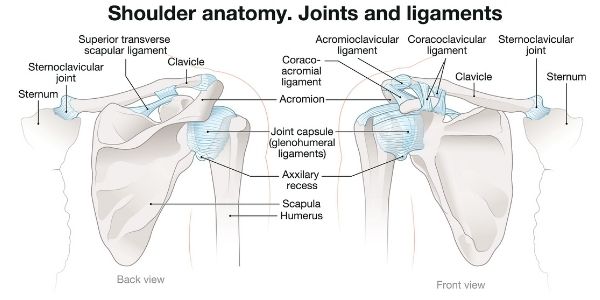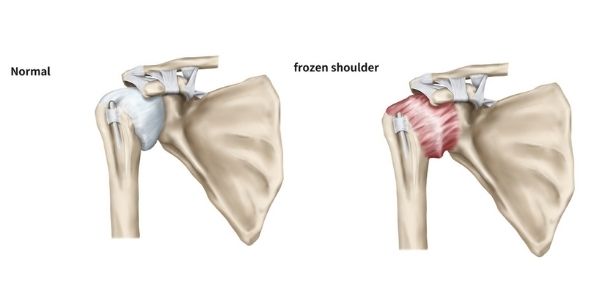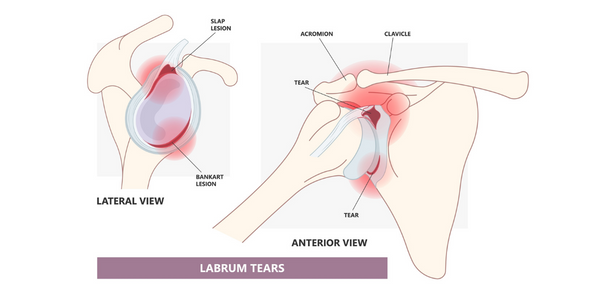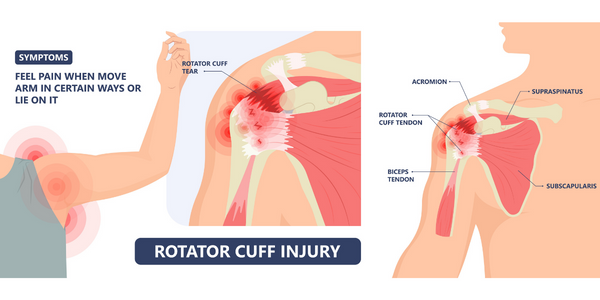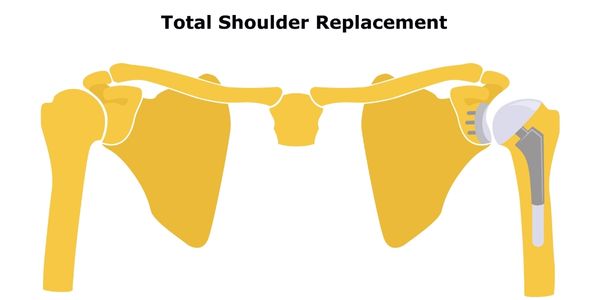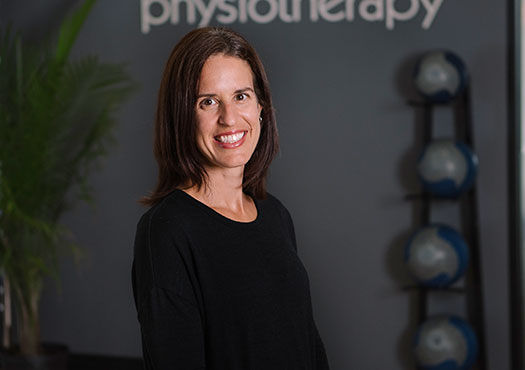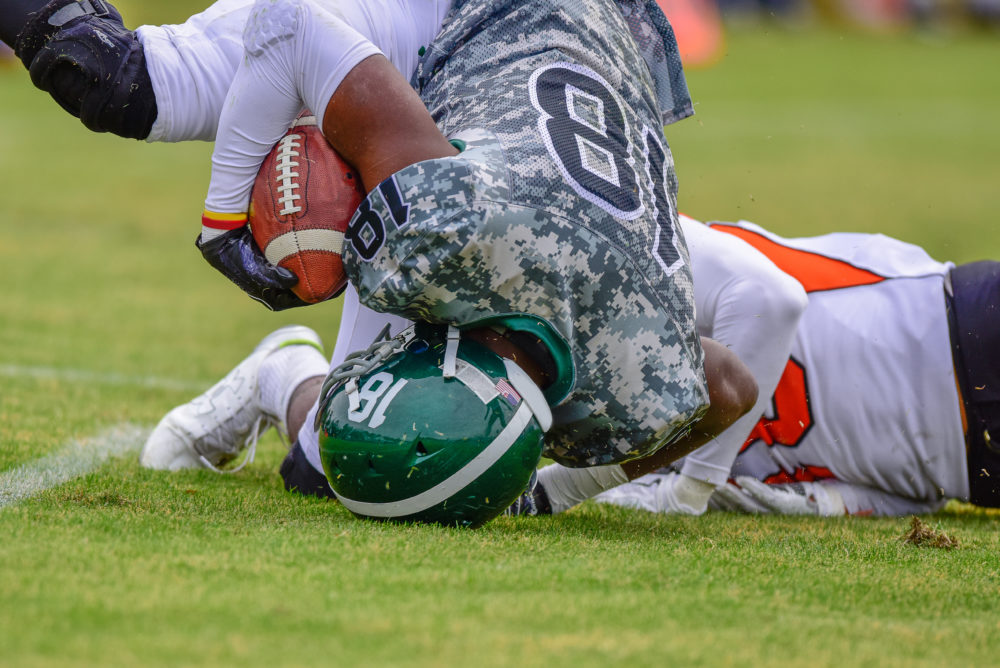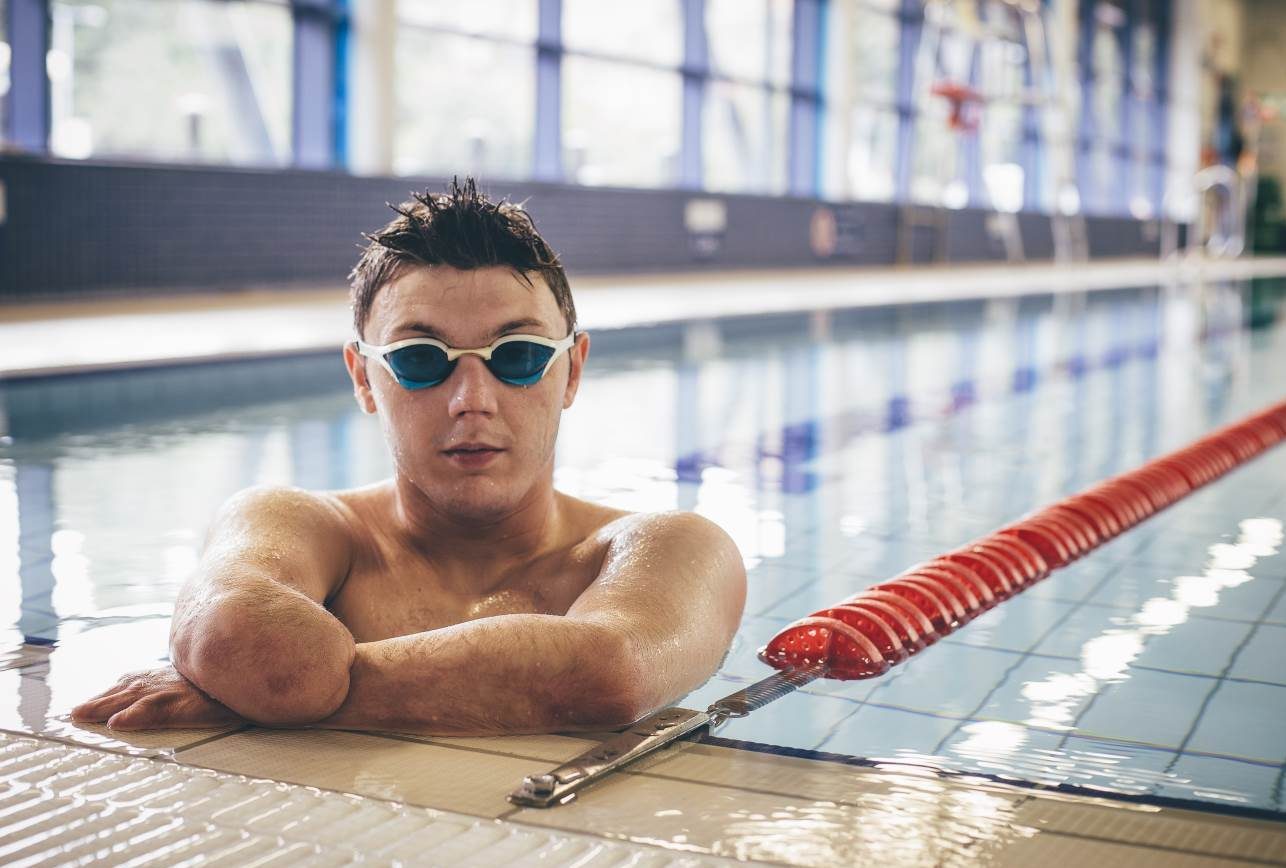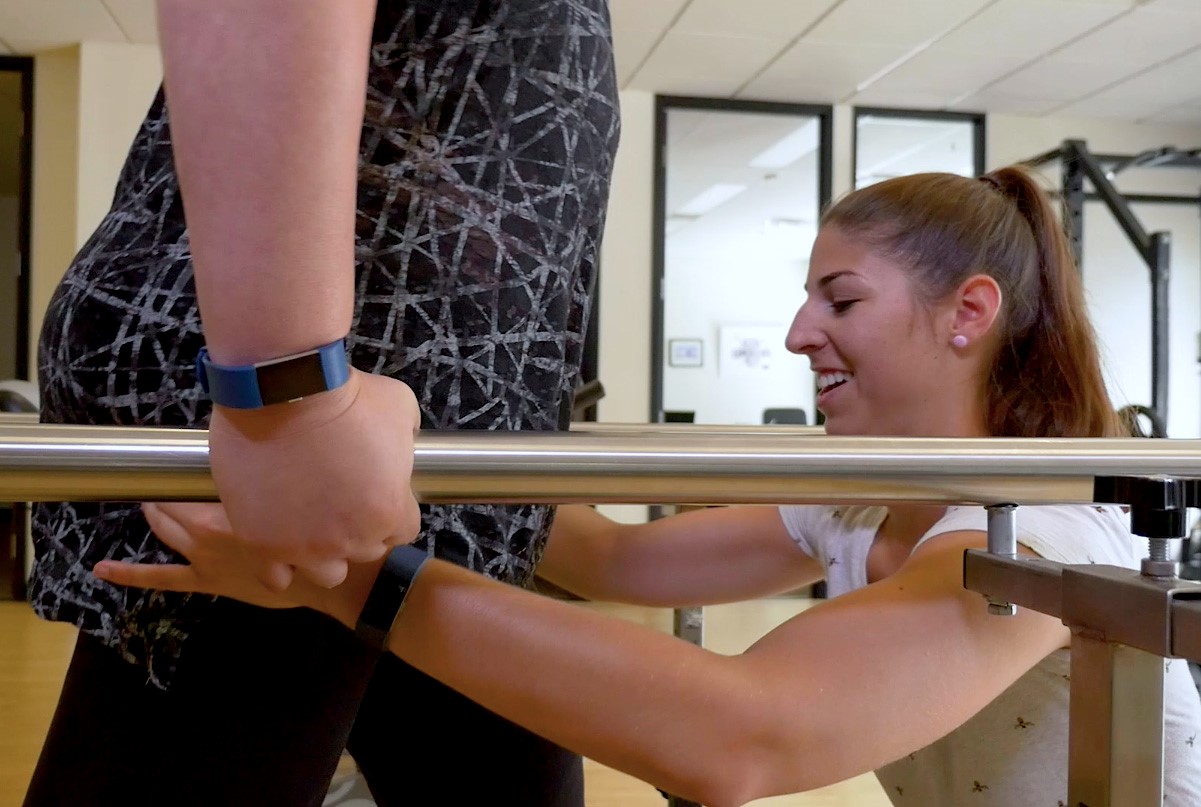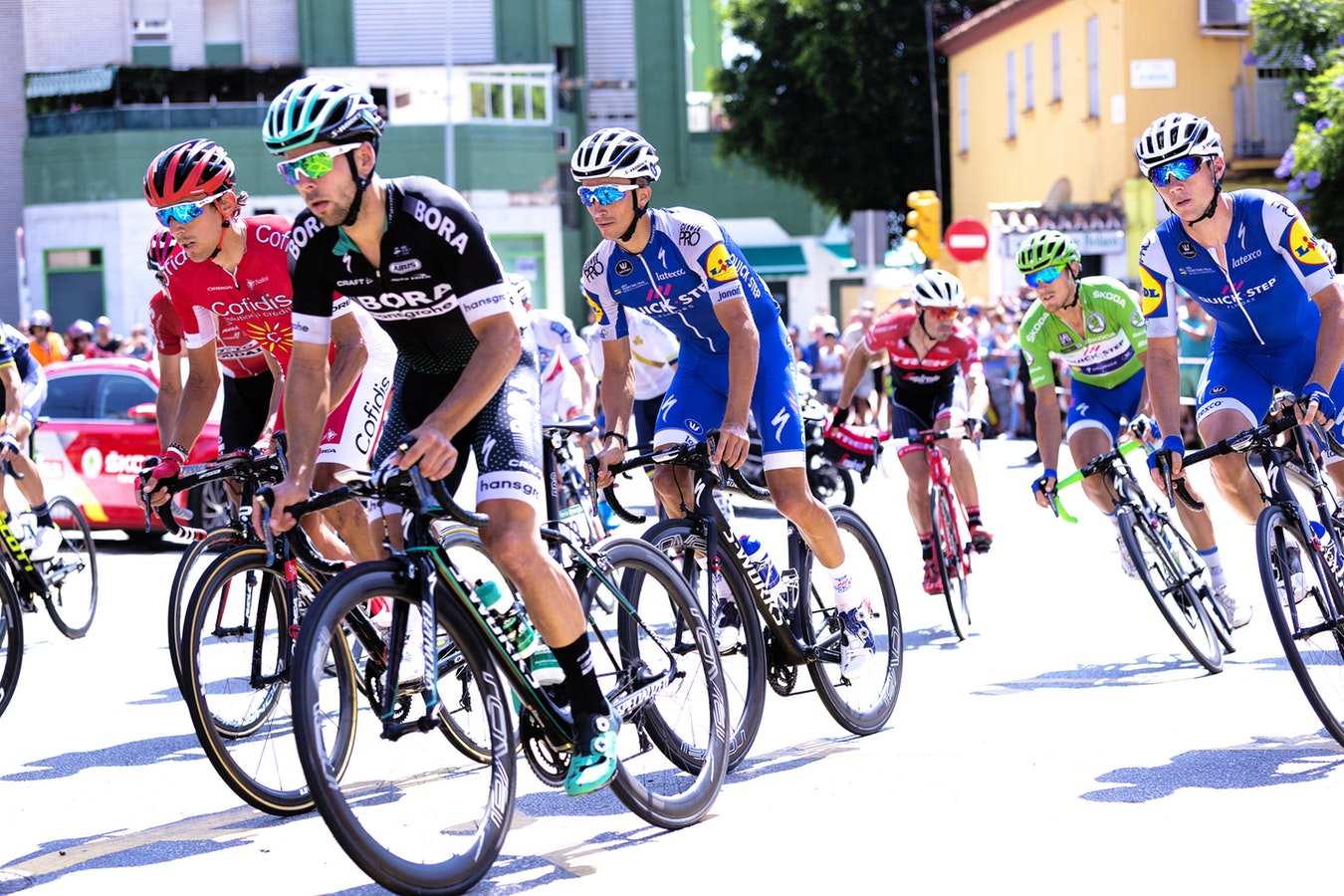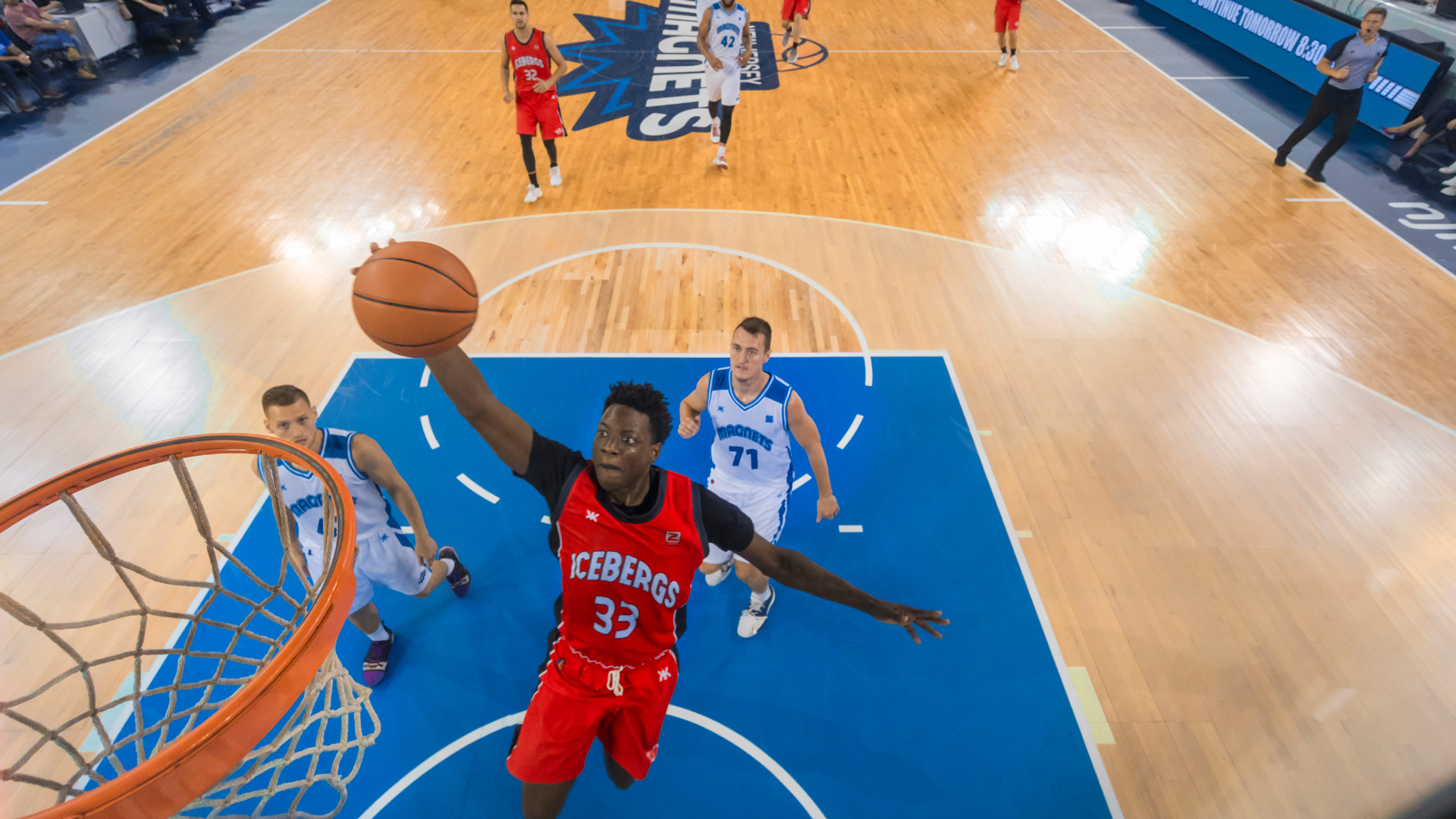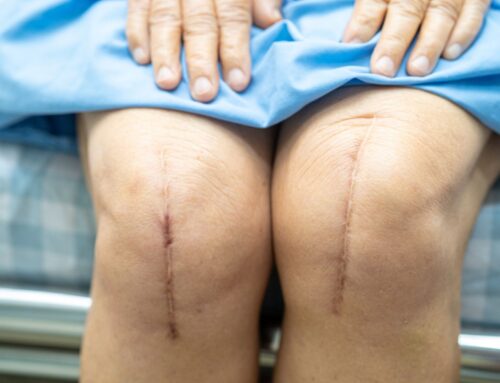The structure of the shoulder joint makes it susceptible to injury. Some common shoulder injuries include frozen shoulder, labral tears and rotator cuff tears. Shoulder pain and disability can also result in the need for shoulder replacement surgery.
In this article, we look at shoulder joint anatomy, why common shoulder injuries occur as well as discuss symptoms, causes and treatment for these common shoulder injuries.
Table of Contents
- Shoulder joint anatomy
- Why common shoulder injuries occur
- Frozen shoulder
- Labral tears
- Rotator cuff tears
- Shoulder replacement
- Summary
Shoulder Joint Anatomy
Your shoulder is made up of three bones: your upper arm bone (humerus), your shoulder blade (scapula), and your collarbone (clavicle). The shoulder is a ball-and-socket joint. The ball, or head, of your upper arm bone fits into a shallow socket in your shoulder blade. This socket is called the glenoid.[i]
All of these structures allow the shoulder to rotate through a greater range of motion than any other joint in the body. However, this increased movement comes with increased vulnerability to injuries and damage.
Why Common Shoulder Injuries Occur
The anatomy of the shoulder joint lends itself to increased vulnerability and susceptibility to injury. The head of the humerus (or upper arm) is supported and properly positioned by the strength of the muscles and ligaments around the joint. Any imbalance in these muscles or strain in the ligaments can result in injury.
Posture also plays a role in shoulder muscle imbalances as rounded shoulders lead to increased tightness in the muscles in front of the shoulder and weakness in the back of the shoulder. For the shoulder joint to move effectively multiple joints and muscles need to work in sync to promote smooth and pain free movement.
Frozen Shoulder
Frozen shoulder is a painful and often debilitating disorder. Although, the cause of frozen shoulder is unknown, there are effective treatments that are successful for most patients. In this article, we explore the stages of frozen shoulder and highlight frozen shoulder physiotherapy treatment and prevention strategies.
Research suggests that conservative treatment of frozen shoulder is successful in up to 90 percent of patients.[ii] Conservative management involves non operative options such as medication, steroid injections, and physiotherapy.
Learn more about frozen shoulder physiotherapy treatment.
Labral Tears
Shoulder labral tears are very common but often go undetected. That’s because the shoulder labrum doesn’t need to be fully intact to have a pain-free and fully functional shoulder. That said, shoulder labral tears can cause painful popping in the shoulder joint, decreased strength and endurance in the shoulder muscles, and decreased loss of internal rotation of the shoulder.
Treatment for shoulder labral tears begins with conservative management, including physiotherapy. In this article, we look at why these injuries occur, different classifications and treatment options.
Your physiotherapist can help provide guidance and education regarding further imaging or even a consultation with an orthopaedic surgeon.
Learn more about shoulder labral tear shoulder treatment.
Rotator Cuff Tears
Rotator cuff tear injuries are one of the most common types of shoulder injury. They can occur both acutely and from chronic stresses to the shoulder. Significant pain and disability in the shoulder joint can result from these types of injuries. In this article, we look at the shoulder anatomy, rotator cuff tear symptoms, causes and treatment.
Rotator cuff tears can occur through repetitive stress injuries through sport, hobbies, work, and improper functional postures. In addition, rotator cuff tears can occur through trauma (motor vehicle accidents, falls).
Physiotherapists can assess and provide treatment to people immediately after a rotator cuff tear. In addition, physiotherapists can direct physiotherapy care and communicate a diagnosis to identify the causes for a person’s ongoing symptoms.
Learn more about rotator cuff tear symptoms, causes and treatment.
Shoulder Replacements
Shoulder pain and disability caused by degenerative diseases and injury can lead to the need for shoulder replacement surgery. Most people who undergo shoulder replacements enjoy life with improved function and less pain. Shoulder replacement physiotherapy is critical to the success of this type of surgery.
Several conditions can cause shoulder pain and disability that can lead to shoulder joint replacement surgery. These conditions include, but are not limited to:
- Osteoarthritis (degenerative joint disease)
- Rheumatoid arthritis
- Post-traumatic arthritis
- Rotator cuff tear arthropathy
- Avascular necrosis
- Severe fractures
Evidence suggests that total shoulder joint replacement and partial shoulder joint replacement for treatment of primary osteoarthritis result in good or excellent pain relief. Results also include improvement in function and patient satisfaction in 95% of cases.[iii] Overall, shoulder joint replacement is a very successful procedure with predictable pain relief and substantial improvements in motion and function.[iv]
Exercise is a critical component of home care, particularly during the first few weeks after surgery. Developing a rehabilitation plan with your physiotherapist can make a positive difference in recovering from shoulder surgery and returning to an active lifestyle.
Learn more about shoulder replacement physiotherapy. This article will help you understand shoulder joint anatomy and reasons for shoulder replacement surgery. We will also discuss the two types of shoulder replacement surgeries and detail shoulder replacement physiotherapy protocols.
Summary
At Propel Physiotherapy our experienced and knowledgeable physiotherapists can help with management and treatment of common shoulder injuries. Our therapists will help provide the right treatment approach depending on your stage of recovery. Come see how we can help you manage pain and optimize your function.
References
[i] Shoulder Joint Replacement, Ortho Info, The American Academy of Orthopaedic Surgeons
[ii] Pandey, V., Madi, S. Clinical Guidelines in the Management of Frozen Shoulder: An Update!. JOIO 55, 299–309 (2021). https://doi.org/10.1007/s43465-021-00351-3
[iii] Norris TR, Iannotti JP. Functional outcome after shoulder arthroplasty for primary osteoarthritis: a multicenter study. J Shoulder Elbow Surg. 2002 Mar-Apr;11(2):130-5. doi: 10.1067/mse.2002.121146. PMID: 11988723.
[iv] Sanchez-Sotelo J. Total shoulder arthroplasty. Open Orthop J. 2011;5:106-114. Published 2011 Mar 16. doi:10.2174/1874325001105010106
Written by


